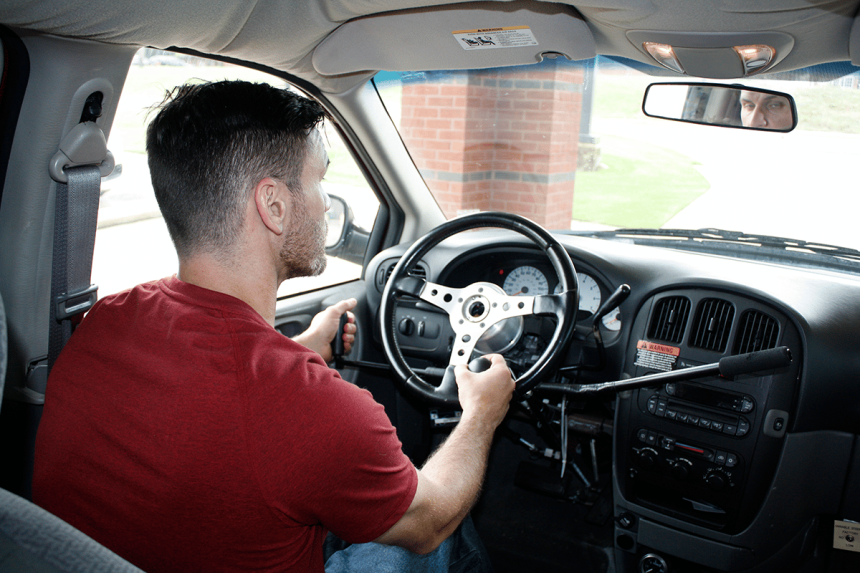Mississippi State University has been selected to participate in a National Science Foundation (NSF) Convergence Accelerator program that is developing new technologies to enhance the quality of life and employment opportunities for persons with disabilities.
An MSU team, which will be directed by Kasee Stratton-Gadke of the T.K. Martin Center, is receiving $750,000 in phase one funding for its multidisciplinary effort to develop new independent driving technologies for persons with disabilities.

The team, which includes experts in behavioral psychology, rehabilitation counseling, human-centered computing, and autonomous vehicles will spend the next year developing virtual reality models that incorporate adaptive driving equipment.
By using virtual reality, persons with disabilities can have better access to training for driving technology that increases their opportunities for employment and community connections.
“This project is a great example of MSU’s ability to develop multidisciplinary teams focused on addressing societal challenges,” MSU Vice President for Research and Economic Development Julie Jordan said. “We have faculty and staff working to support a wide range of persons with disabilities through research and applied practice, and this award reflects their outstanding work. I am incredibly proud that MSU will be participating in this impactful NSF program.”
MSU is part of the 2022 NSF Convergence Accelerator cohort, Track H: Enhancing Opportunities for Persons with Disabilities which is working to support use-inspired solutions to grow economic opportunities and enhancement of quality of life for persons with disabilities.
“Transdisciplinary, use-inspired research offers tremendous potential to accelerate novel solutions to the everyday challenges faced by persons with disabilities,” Erwin Gianchandani, NSF assistant director for Technology, Innovation and Partnerships said. “Through the Convergence Accelerator’s Track H, we are bringing together diverse perspectives and expertise spanning academia, industry, nonprofits and other communities to enable solutions and open opportunities for people who need it most.”
The MSU team will identify gaps in research related to independent driving technology, develop and formalize partnerships with key stakeholders and participate in NSF programming over the course of the next nine months. The information gathered from that research will inform the independent driving solutions they develop and prototype for persons with disabilities.
At the end of the nine months, MSU will participate in a formal phase two proposal and pitch for up to $5 million of additional funding to continue the project.
Stay up to date with all of Mississippi’s latest news by signing up for our free newsletter here.
Copyright 2023 SuperTalk Mississippi Media. All rights reserved.







